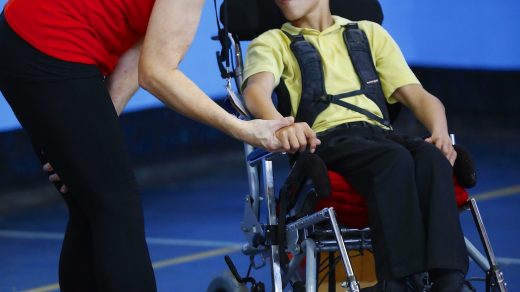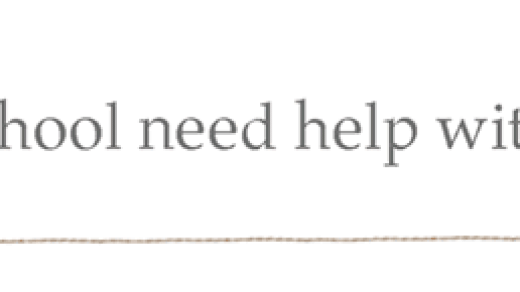Martial arts to tackle modern issues

Can combat sports really be used to fight crime and antisocial behaviour? Hannah Fowler chats to Jimmy McGinn and Dean Garnett about a new prevention project using the practices of Martial Arts to tackle modern issues.
In 2019, knife crime offences reached a record high in England and Wales (ONS). And people are all too familiar with the headlines across Merseyside – where knife crime incidents have doubled in the last five years. The Angel of Knives sculpture, made from more than 100,000 confiscated knives and displayed outside the Anglican Cathedral in 2018, was a powerful reminder of the impact knife crime has on people’s lives.
Education programmes are considered a key way to prevent children and young people from entering into criminal activities in the first place. One such programme hoping to achieve real change is ‘Fighting for a Future’, martial arts designed and delivered by the LSSP Foundation and Aspire Combat Sports Academy.
“The project came into being after a focus group with young men, about what type of activities they would like to see in schools. Martial Arts Combat based activities came up quite a lot,” explains Jimmy McGinn, partnership manager at LSSP.
“The interesting thing for me was it was about them having a ‘safe space’ to let off steam as they expressed they often felt frustrated, which led to anger and occasionally confrontation.”
Charitable Incorporated Organisation (CIO) that is dedicated to providing all children and young people with the best possible PE, school sport and physical activity experiences. While Aspire Combat Sports Academy is one of the UK’s leading Mixed Martial Arts (MMA) and Brazilian Jiu Jitsu gyms, based in Liverpool. With the sports sector recognised as playing a key role in implementing interventions to prevent young people from becoming involved in, or a victim of crime, they knew that by working together they could achieve real impact.
Jimmy knew about the positive work Aspire CSA were doing within the community and saw an opportunity to use their young MMA athletes as role models and mentors for the programme. Thanks to funding through the newly formed Merseyside Violence Reduction Unit (VRU), they set to work on the ambitious project.
The Fighting for a Future programme is targeted at young men in secondary schools, identified as dealing with anger issues. Delivered via a six week after-school club, the focus is to understand the need to have a disciplined focus on their future, using combat sport as a way to teach important life lessons. To broaden the impact of the funding, LSSP set the MMA athletes the challenge of developing a self defence programme for primary schools. This part of the programme, called ‘Keeping Yourself Safe’ is delivered in a one-hour workshop and teaches pupils how to avoid confrontation and dangerous situations.
All the sessions are delivered by the MMA athletes, who are aged between 17 and 21 years old, and overseen by one of the head coaches from Aspire CSA. “Crime and antisocial behaviour are massive agendas for us and we feel like we are the best vehicle, because kids who are going to be hard to reach around issues like violent crime and antisocial behaviour don’t respond to teachers, but will definitely respond to young up-and-coming MMA fighters,” says Dean Garnett, professional MMA fighter and co-founder of Aspire CSA.
Before the programme started, each athlete received training on how to be a mentor and learnt more about the issues of serious youth violence. “Seeing the young mentors develop the content for the programmes has been amazing,” says Jimmy.
While it sounds like a paradox – the idea of using combat sports to tackle anger issues and antisocial behaviour, Jimmy believes the project teaches transferrable skills to help them through life. “The project is actually about getting young men to understand that they need to fight for their own futures by having a disciplined approach to school and life, which will hopefully reduce the chances of them being involved with serious violence,” he says.
Research suggests that participating in Martial Arts helps improve self-awareness, self-esteem, emotional stability and self-regulation (Busch, 2017). And some early findings also advocate that combat sport can help reduce violence, anger and aggression. For Dean, Mixed Martial Arts changed his teenage years and gave him purpose.
“As soon as I got involved in Mixed Martial Arts, the guys I was looking up to represented the values of commitment, dedication, community and awareness, that’s what changed my life,” he explains. “Being exposed to young fighters who were professionals in something that I was really engrossed in helped change my perceptions of what I wanted to be in the future and what I wanted to be giving back to society.”
That’s why he believes so passionately about this project. “I wanted to create an avenue to get these role models out there to younger kids, who can relate to them and deliver a message that certainly violence isn’t the answer. We came up with a really ingenious system called the D.A.D system.”
The D.A.D system – Diffuse, Avoid and Defend, is a simple and effective self-defence method for children and young adults to understand and use. “When we talk about Diffuse, we talk about a C.A.R.E system, this stands for Communication, Awareness, Respect and Empathy,” explains Dean. The C.A.R.E system represents the key pillars for diffusing and preventing conflict.
Avoid teaches participants how to measure levels of danger using a traffic light system of green, amber and red. “We use distance as a level of danger – these are principles that come from combat sports, but we’ve made them childfriendly,” says Dean. “As an MMA fighter myself whose had 15 professional fights, these are systems I have to adopt when I’m in the cage.”
Sometimes, physical altercation can’t always be avoided, so the programme teaches young people how to Defend themselves by escaping wrist grabs, body locks and head locks, with the emphasis on getting back to the safety of the green zone. “There is no offence involved, it’s purely defence and getting yourself safe, keeping yourself safe and preventing violence and conflict,” adds Dean.
While learning the physical techniques of combat sports, the project’s focus is very much on developing skills such as confidence, communication and mutual respect to avoid conflict. “We talk to students about the values involved with building good relationships with people, and we emphasise how these transferrable skills will improve the quality of their relationships at home and school,” explains Dean.
“We also talk about empathy as a way to prevent conflict, in understanding how people feel but also if you do find yourself in conflict, can you use empathy to reverse that person’s anger with you.”
While the project’s focus is all about changing attitudes, the physical aspect is still important, says Dean. “We talk to the pupils about the importance of physical activity and how these skills transfer in to education. The science proves that your physical motor skills directly affect quality of life and academic results. The better they are at all these things we’ve talked about, such as the principles of C.A.R.E and being physically active, the better they are going to do in school and have better relationships.”
Unfortunately, with school buildings closed to most students due to the coronavirus, the project is currently on hold but will continue when the schools reopen. So far, 148 primary school pupils and 28 secondary school pupils have taken part in the programme, from schools such as the Academy of St Nicholas, Fazakerley High, Pinehurst Primary, St Cecilia’s Juniors and Stockton Wood Primary.
Nevertheless, Jimmy and Dean have been overwhelmed with the feedback to date. “So far the sessions we’ve delivered have been better than I expected, in terms of feedback and interaction from pupils and the feedback we’ve had from teachers has been brilliant, we’re hoping this is a real success,” says Dean. “Feedback from the schools engaged so far has been excellent. One of the secondary school teachers was amazed at just how engaged the pupils were,” adds Jimmy.
The full impact of the programme won’t be felt until it concludes, but early evidence shows that the participants are engaging well with the key messages of communication, awareness, respect and empathy. The programme builds on the power of sport as a tool for crime prevention and highlights the contributions that sport can make to communities as a whole, and the individuals who are fighting for their own futures. Can combat sports really be used to fight crime and antisocial behaviour? In the words of Bruce Lee, ‘Optimism is a faith that leads to success’.




